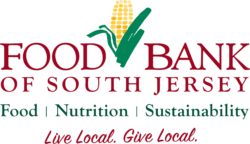A Year of School Lunches: Celebrating National School Lunch Week Amidst A Pandemic
Research shows school meals are essential to helping the next generation reach its full and healthy potential. Since the beginning of the pandemic, which surged youth hunger throughout South Jersey to an alarming 1 in every 5 children, the Food Bank of South Jersey (FBSJ) distributed nearly TWO MILLION CHILDREN’S MEALS to a community hopeful, resilient and eager to uplift its most food-vulnerable population.
This week, the U.S. Department of Agriculture (USDA) joined with students, parents, schools, communities, and partners across the nation in recognition of National School Lunch Week at a time when the week takes on even greater significance as schools continue to work together to navigate the ever-changing pandemic situation and ensure children receive nutritious school meals.
- The Food Bank of South Jersey is committed to working hand-in-hand with state and local partners to ensure they have the support they need to best serve the children in their care.
- FBSJ, during the summer of 2021, continued its child feeding programming as a swelled population of nearly 63,000 children faced food insecurity in Burlington, Camden, Gloucester and Salem counties.
- Thanks to a village of support from locations and an inspirited community of sponsors, supporters, donors, volunteers and friends, FBSJ’s Summer Meals 2021 impact resulted in 130 locations distributing more than 300,000 meals.

In a proclamation recognizing National School Lunch Week 2021, the White House stated:
The COVID-19 pandemic amplified the importance of the National School Lunch Program for millions of children who rely on school meals throughout the United States. During the darkest days of the pandemic when businesses closed, people lost their jobs, and millions of Americans turned to food banks to feed their families, school meals remained a consistent source of quality nutrition.

